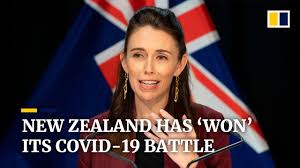Seven weeks into lockdown and I appear to have developed something of a routine. It goes something like this – wake up, mint tea, think about what’s for tea, do some work, think about tea, walk dogs, make and eat tea, chat with friends and family, watch TV or listen to music, go to bed. Repeat.
Of course, the days when I get to walk the dogs in the morning are like little victories, flicking two fingers at the pesky virus and its lockdown rules. I’ve also been able to exercise more, get out on the bike and even a few 5k runs – great when I have miles of largely deserted beach and dunes at my doorstep.

Social media has, of course, become even more of a dominant influence cementing its reputation as a two-faced security blanket/anxiety trigger. FOMO (Fear of Missing Out) has largely disappeared, as really there’s nothing to miss out on anymore, I’ve even forgotten all about football.
What has been encouraging is to see how the PR/comms community has come together to share insight and perspective on the good and bad of how the crisis is being managed and strategized. There really is a treasure trove of analysis, case studies and secondary sources that all PR students should have in their search engines on speed dial!

Of course, our very own visiting professor Stephen Waddington is leading the way with his regular analysis and lockdown letters on the Wadds blog. Stephen’s output has been impressive over the last few weeks with his posts not only acting as meaningful and important analysis but also a pause for reflection over what we can learn as people and society. Stephen’s reflection on Covoid brand conversations should be one of the first stops for any PR dissertation student looking at how brands have used the pandemic to manage reputation.

I continue to be impressed by PR Academy, edited by Richard Bailey, with its more scholarly tone and useful guides to the theories and concepts which guide comms. Richard’s briefing on the PESO model was a go to teaching tool for me this year. Recently the Academy’s content has understandably focused more on crisis – check out these crisis book reviews – and its league table of student blogs #bestPRblogs is always a timely reminder that I need to encourage our Newcastle students to blog more. Watch out PR Academy, Newcastle is coming for you (that’s really hard to say as a Sunderland fan!).
I’ve always enjoyed PR Moment for its blend of light and dark industry perspectives from those working at the coalface of comms. In particular, its regular Good and Bad PR feature is a great source for practice case studies and campaigns. And of course, there’s PR Week which offers the latest UK industry news, albeit behind a paywall.
On Facebook, the marketing, media and PR community of practice has emerged in the past few weeks as the go to resource for engagement and conversation, particularly around Covoid comms and messaging. Again, it’s been developed by Stephen Waddington, with some impressive metrics – more than 300 members and dozens of topics on everything from Captain Tom’s fundraiser to mainstream media distraction. The group is helping to shape how practitioners and academics are making sense of the strategy as we emerge into new ways of living and working – which leads me to my closing thoughts.

I’ve had a number of conversations with colleagues this week, including with the parent of a prospective student, about how PR and comms. will fare from the crisis. There’s a strong sense that the sector could emerge stronger and with new found respect. Perhaps even with New Zealand president – and PR graduate – Jacinda Ardern as its knight in All Blacks armour!
Generally, PR and comms was ‘relatively’ thriving pre-Corona compared with other media sectors, particularly journalism. The pandemic has, however, put an immediate dent in that with commercial organisations understandably putting a hold on budgets and recruitment.
But one of the positives is that clear comms. is coming to the fore during the pandemic and is what people value. That’s being recognised widely, and while not practiced by the UK government, my hope is that the sector will emerge with increased credibility as organisations recognise the importance of clear and consistent comms and messaging. Ultimately that may translate to greater recognition for PR with organisations supporting within their teams internally and externally.
